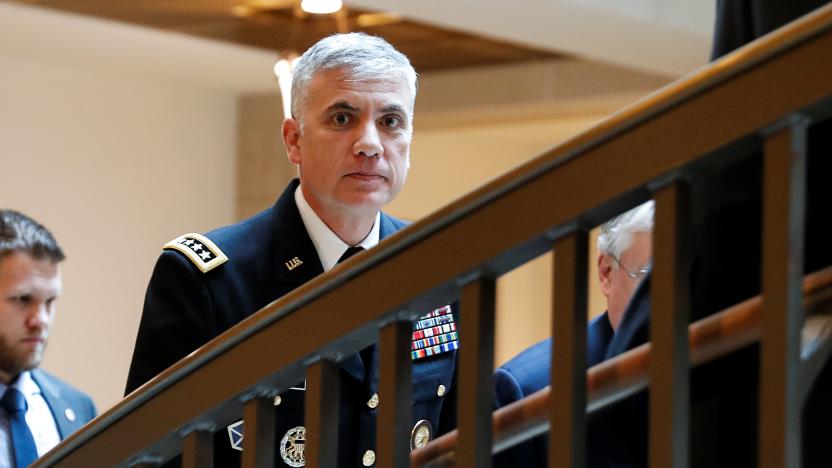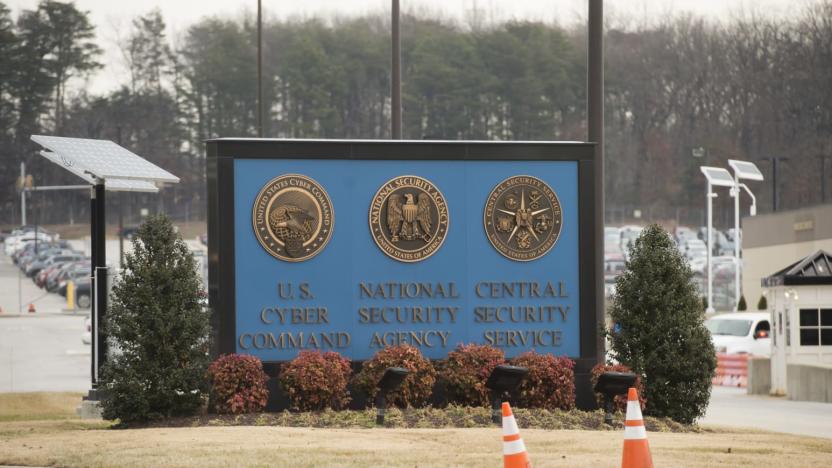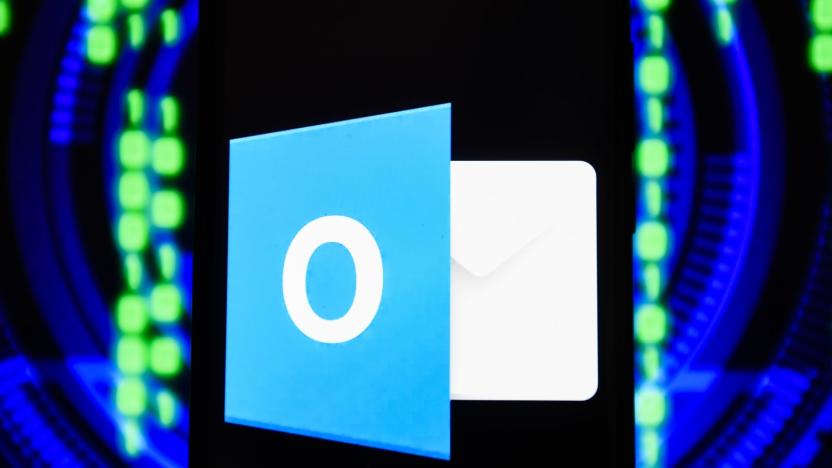cyber command
Latest

SolarWinds hack may have been much wider than first thought
The SolarWinds hack may have compromised many more networks than first thought, and might have taken advantage of weaknesses in the US and Europe.

Trump administration proposes splitting Cyber Command from the NSA
The Trump administration has proposed splitting Cyber Command leadership from the NSA, although it's not clear if the division is ready.

Microsoft helped disrupt the infamous Trickbot botnet
Microsoft has confirmed that it and partners disrupted the Trickbot botnet in a bid to protect US elections.

Trump confirms cyberattack against Russian trolls during 2018 midterms
Trump has confirmed a rumored cyberattack against Russia that was meant to thwart disinformation during the 2018 midterm elections.

NSA contractor sentenced to nine years over theft of classified info
In 2016, federal agents arrested NSA contractor Harold Martin for stealing up to 50TB of classified information, and reports claimed that included offensive hacking technology designed to break into foreign computer networks. Sources for the data he took included the NSA, CIA and US Cyber Command over two decades between 1996 and 2016. On Friday, U.S. District Judge Richard Bennett sentenced Martin to nine years in prison for the offense -- per his plea agreement, even as each of the twenty charges against him could have carried up to a 10 year sentence -- and while that has ended the case, it didn't answer all the questions. Around that same time, the "Shadow Brokers" started leaking classified NSA hacking tools online, tools that included exploits later used by malware like NotPetya and WannaCry. According to CyberScoop, the judge noted a suspicious Twitter message linked to an account Martin supposedly operated that went out hours before the leaks, and the government declined to comment further. Prosecutors told the judge they never found proof he shared the documents from anyone, and speculation about how the group got its classified information is still unconfirmed. As for Martin, his sentence includes credit for three years already served, as well as three years of supervised release.

US Cyber Command warns of nation-state hackers exploiting Outlook
The recent surge in state-backed hacking campaigns isn't dying down any time soon. US Cyber Command has reported that unnamed state actors are making "active malicious use" of a 2017-era Outlook vulnerability (long since patched) to escape the email client's sandbox and run malware on a target system. While officials didn't say who was involved, some clues have hinted at a possible connection to Iran.

US cyberattack reportedly knocked out Iran missile control systems
The US may have withheld a physical military response to Iran shooting down a drone, but it might not have shown similar restraint with a digital campaign. Washington Post sources say the President greenlit a long-in-the-making cyberattack that took down Iranian missile control computers on the night of June 20th. The exact impact of the Cyber Command operation isn't clear, but it was described as "crippling" -- Iran couldn't easily recover, one tipster said.

The US planted offensive malware in Russia's power grid
The US appears to be acting on its promise to aggressively respond to cyberwarfare threats. New York Times sources say Cyber Command has planted offensive malware in Russia's electrical grid, not just reconnaissance as has been the case since "at least" 2012. It's not certain just how deep the infiltration goes or what malware is capable of doing. The intention, however, is clear -- this is meant both to serve as a deterrent as well as a weapon in case the US and Russia trade blows.

Cyber Command put the kibosh on Russian trolls during the midterms
The US military has reportedly retaliated against Russian attempts to interfere in elections. Cyber Command took the notorious Internet Research Agency offline on 2018 midterm election day in November, officials told the Washington Post.

U.S. Department of Defense preps cyber rules of engagement, plans to work more closely with ISPs
The Pentagon left no room for argument last year when it declared cyber attacks a potential act of war. "If you shut down our power grid, maybe we will put a missile down one of your smokestacks," a military official reportedly remarked. Yikes. Before we start bombing chimneys, however, the Department of Defense plans to draft up some relevant guidelines, noting in a recent House Armed Services Committee hearing that it will be delivering a set of cyberspace-specific rules of engagement in the coming months. "We are working closely with the joint staff on the implementation of a transitional command and control model for cyberspace operations," said Madelyn Creedon, assistant secretary of defense for Global Strategic Affairs. In addition to setting ground rules for cyber-engagements, the DOD also plans to expand efforts to share classified information on possible threats with internet service providers and defense contractors.

US Cyber Command achieves 'full operational capability,' international cyberbullies be warned
A sword, a lightning bolt, a key, a globe, and a bird. These are the symbols of your United States Cyber Command, which you'll be proud to know has "achieved full operational capability." FOC is when a military organization basically has what it needs and knows how to use it, but we're guessing our new cyber-commandos will be a little nervous at first, like a prom date just presented with a room key, or a Modern Warfare player with a new weapon attachment. Surely the USCC will get into its stride real soon, enabling it to "operate and defend our networks effectively." You know what that means: feel free to be a little extra offensive when trolling on foreign soil today. Uncle Sam has your back.

Thumb drive-based malware attack led to formation of US Cyber Command
Recently declassified documents have revealed that the worst breach of U.S. military computers evar went down in 2008, a major turning point in our nation's cyberstrategy that eventually led to the formation of the United States Cyber Command. Operation Buckshot Yankee, as the defense came to be known, began when a USB thumb drive infected by a foreign intelligence agency was found in the parking lot of a Department of Defense facility in the Middle East. Whomever found the thing placed it in their laptop (probably hoping to find Justin Bieber MP3s), which just so happened to be attached to United States Central Command. From that point, writes Deputy Defense Secretary William J. Lynn in Foreign Affairs, malware spread "undetected on both classified and unclassified systems, establishing what amounted to a digital beachhead, from which data could be transferred to servers under foreign control." Yikes! We still haven't found out which country orchestrated the attack, or what they might have learned from it, so until the Pentagon tells us otherwise we're going to do what we usually do in these situations and blame Canada (sorry, Don). [Warning: read link requires subscription]

Congressional record states the iPad is "wonderful"
In giving testimony at a Congressional hearing as to whether he will lead the U.S. Cyber Command, Lieutenant General Keith B. Alexander, current Director of the NSA, mentioned that he owned an iPad. Is that relevant to his his future role of defending America from cyber terrorists? Nope. But how cool is it that the freakin' Director of the NSA loves his iPad so much he brings it up at a Congressional hearing, unprompted? Pretty damn cool. As a matter of fact, when the Lieutenant General brought up that he had an iPad, national security took a slight sideline when a congressman returned to the subject of the iPad moments later. According to the actual Congressional Record: Congressman: I'm tempted to get a critical review of the iPad, but perhaps we can do that-- Director of the NSA: [It's] Wonderful. Congressman: "Wonderful." I will put that on -- for the record. So there you go folks: not only is the iPad "magical" and "revolutionary," it's also now officially a "wonderful" device, too.





